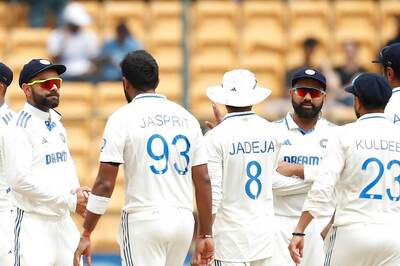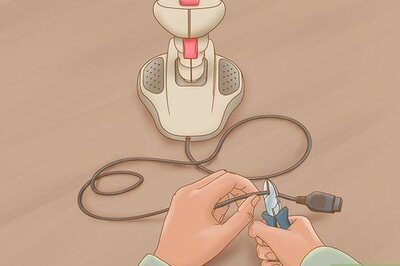
views
COLUMBIA, S.C.: A federal judge said Monday that a decision will come shortly on whether to suspend a new South Carolina law banning abortions through the end of a legal challenge from Planned Parenthood.
U.S. District Judge Mary Geiger Lewis said that before she can issue the decision, she will still have consider requests from South Carolina Gov. Henry McMaster and House Speaker Jay Lucas to intervene in the case in support of the new law.
Lewis initially suspended the South Carolina Fetal Heartbeat and Protection from Abortion Act last month, a day after McMaster signed it into law and Planned Parenthood proceeded to sue. An extension issued last week by Lewis on the temporary restraining order runs through March 19.
The measure requires doctors to perform ultrasounds to check for a heartbeat in the fetus, which can typically be detected about six weeks after conception. If one is detected, the abortion can be performed only if the pregnancy was caused by rape or incest or if the mothers life is in danger.
On Monday, Lewis grilled lawyers representing the state attorney general’s office on claims that the ultrasound requirement, along with some of the law’s other components, could be found constitutional on their own and should be upheld separate of the ban itself.
Deputy Solicitor General Emory Smith argued that such a requirement showing a fetal heartbeat, even without the abortion ban, could prompt a woman to change her mind about an abortion. And that would be in the state’s interest to protect human life, Smith said.
But Lewis appeared unconvinced of the claim, saying the ultrasound requirement seemed inextricably tied to the ban. She expressed skepticism that the state’s interest would outweigh a woman’s constitutional right to an abortion: The state could never have an interest that would outweigh that, Lewis said.
Planned Parenthood supports an extended stay on the categorically unconstitutional law, said Julie Murray, an attorney representing the group.
The bans opponents have said many women dont know they are pregnant before a heartbeat is detected, especially if they arent trying to conceive. And with such an early deadline, the law gives women little time to consider whether to have an abortion.
About a dozen states have passed similar or more restrictive abortion bans. These could take effect if the U.S. Supreme Court with three justices appointed by Republican former President Donald Trump were to overturn Roe v. Wade, the 1973 court decision supporting abortion rights. Federal law supersedes state law.
The South Carolina measure does not punish a pregnant woman for getting an illegal abortion, but the person who performed the abortion could be charged with a felony, sentenced up to two years and fined $10,000 if found guilty.
South Carolina has three clinics that provide abortions in its largest metropolitan areas Charleston, Columbia and Greenville and none of them performs abortions after the first trimester. Two of the clinics perform abortions only twice a week, according to Planned Parenthood.
___
Liu is a corps member for the Associated Press/Report for America Statehouse News Initiative. Report for America is a nonprofit national service program that places journalists in local newsrooms to report on undercovered issues.
Disclaimer: This post has been auto-published from an agency feed without any modifications to the text and has not been reviewed by an editor
Read all the Latest News, Breaking News and Coronavirus News here




















Comments
0 comment